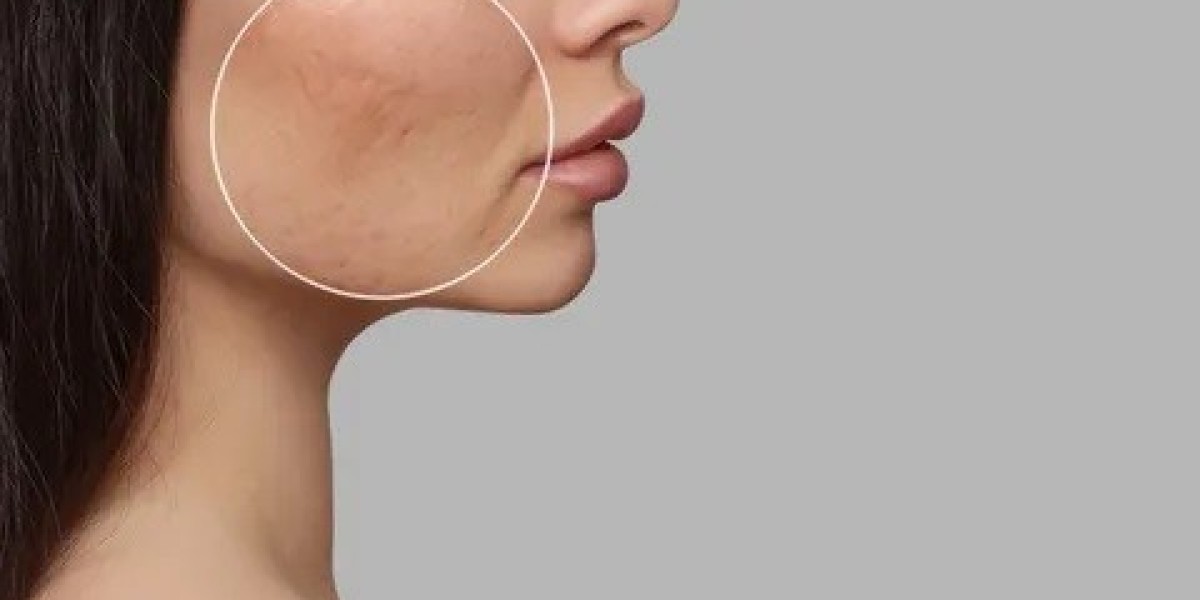Acne scars can leave lasting marks on your skin and confidence, regardless of your skin type. However, those with dry skin face unique challenges. Dry skin lacks natural oils, which makes it prone to flakiness, irritation, and slow healing. This not only makes scars more visible but also complicates the process of treating them. Fortunately, professional options like Acne scar treatment in Islamabad combined with proper dry skin care can deliver noticeable improvements.
Why Dry Skin and Acne Scars Are a Difficult Combination
Dry skin already lacks sufficient hydration and elasticity. When acne occurs, the healing process is slower compared to oily or combination skin types. As a result:
Scars Appear Deeper – The lack of moisture makes the skin less plump, making scars look more pronounced.
Increased Irritation – Dryness makes the skin sensitive, which can worsen redness and pigmentation.
Slow Recovery – Dehydrated skin struggles to regenerate, prolonging the healing of scars.
Flakiness Accentuates Scars – When the skin peels, scars become more noticeable under uneven texture.
Professional Options for Acne Scar Treatment in Islamabad
Cosmetic clinics in Islamabad offer a range of treatments suitable for people with dry, sensitive skin. A dermatologist will usually evaluate your scar type and skin condition before recommending the right option.
1. Chemical Peels (Mild Formulations)
Special peels with hydrating agents can exfoliate scarred layers gently while improving skin hydration. Lactic acid-based peels are often recommended for dry skin.
2. Microneedling with Serums
Microneedling stimulates collagen production, and when combined with hydrating serums, it reduces scars while nourishing the skin.
3. Laser Treatments
Fractional CO2 lasers are effective for acne scars, but dermatologists often customize the intensity for dry skin to avoid irritation.
4. PRP Therapy (Platelet-Rich Plasma)
PRP uses your own growth factors to repair scar tissue, improve texture, and promote hydration. It’s a safe option for dry skin patients.
5. Dermal Fillers
For deep, atrophic scars, fillers restore volume under the skin, making scars less visible and skin smoother.
At-Home Skincare Tips for Dry, Scar-Prone Skin
Even after professional treatment, your daily skincare routine plays a vital role in maintaining results. Here are some essential tips:
1. Moisturize Intensively
Choose rich, hydrating creams with hyaluronic acid, ceramides, or shea butter. A well-moisturized skin barrier heals faster and makes scars less prominent.
2. Gentle Cleansing
Avoid harsh foaming cleansers. Instead, use cream or gel-based cleansers that remove impurities without stripping natural oils.
3. Hydrating Serums
Incorporate serums with niacinamide and hyaluronic acid to repair the skin barrier while reducing pigmentation around scars.
4. Avoid Over-Exfoliation
Dry skin cannot handle strong exfoliants. Stick to mild exfoliation once a week with lactic acid or enzyme-based products.
5. Always Wear Sunscreen
UV rays worsen pigmentation and make scars darker. Use a moisturizing sunscreen with SPF 30 or higher daily.
6. Use Retinoids Cautiously
Retinoids improve cell turnover but can be drying. If recommended by your dermatologist, use them sparingly with a strong moisturizer.
Natural Remedies That Help Dry Skin with Acne Scars
While professional treatments are essential for significant results, natural remedies can support hydration and scar reduction:
Aloe Vera Gel – Soothes dryness and reduces redness.
Honey Masks – Hydrates skin naturally and supports scar healing.
Rosehip Oil – Rich in vitamins A and C, helps regenerate skin and fade scars.
Coconut Oil (for extremely dry patches) – Locks in moisture, but should be patch-tested to avoid pore clogging.
Diet and Lifestyle Tips for Dry, Scar-Prone Skin
Your skin reflects your overall health. These lifestyle tips can improve both dryness and scar healing:
Stay Hydrated: Drink at least 8 glasses of water daily.
Consume Healthy Fats: Avocados, nuts, and olive oil improve skin hydration from within.
Vitamin C & E Rich Foods: Boost collagen and skin repair.
Humidifier Use: Keeps your environment hydrated, especially in winter.
Quality Sleep: Promotes cellular repair and faster scar healing.
Combining Clinic Treatments with Dry Skin Care
For best results, dermatologists often recommend a combined approach. Treatments such as microneedling or PRP target scars, while a tailored skincare routine keeps dry skin nourished. By maintaining hydration before and after treatments, you can enhance healing and achieve smoother, healthier-looking skin.
Why Choose Islamabad for Acne Scar Treatments?
Islamabad is home to modern cosmetic clinics with highly experienced dermatologists who understand the unique needs of different skin types, including dry skin. With access to advanced technology, customized treatment plans, and affordable options, patients can achieve effective scar reduction with minimal downtime.
Final Thoughts
Acne scars on dry skin can be particularly stubborn, but with the right combination of professional treatments and at-home care, you can achieve remarkable results. If you are considering Acne scar treatment in Islamabad, consult a qualified dermatologist to find a treatment plan designed specifically for your skin type. For reliable care, advanced technology, and expert guidance, visit SKN Cosmetics and take the first step toward smoother, hydrated, scar-free skin.






